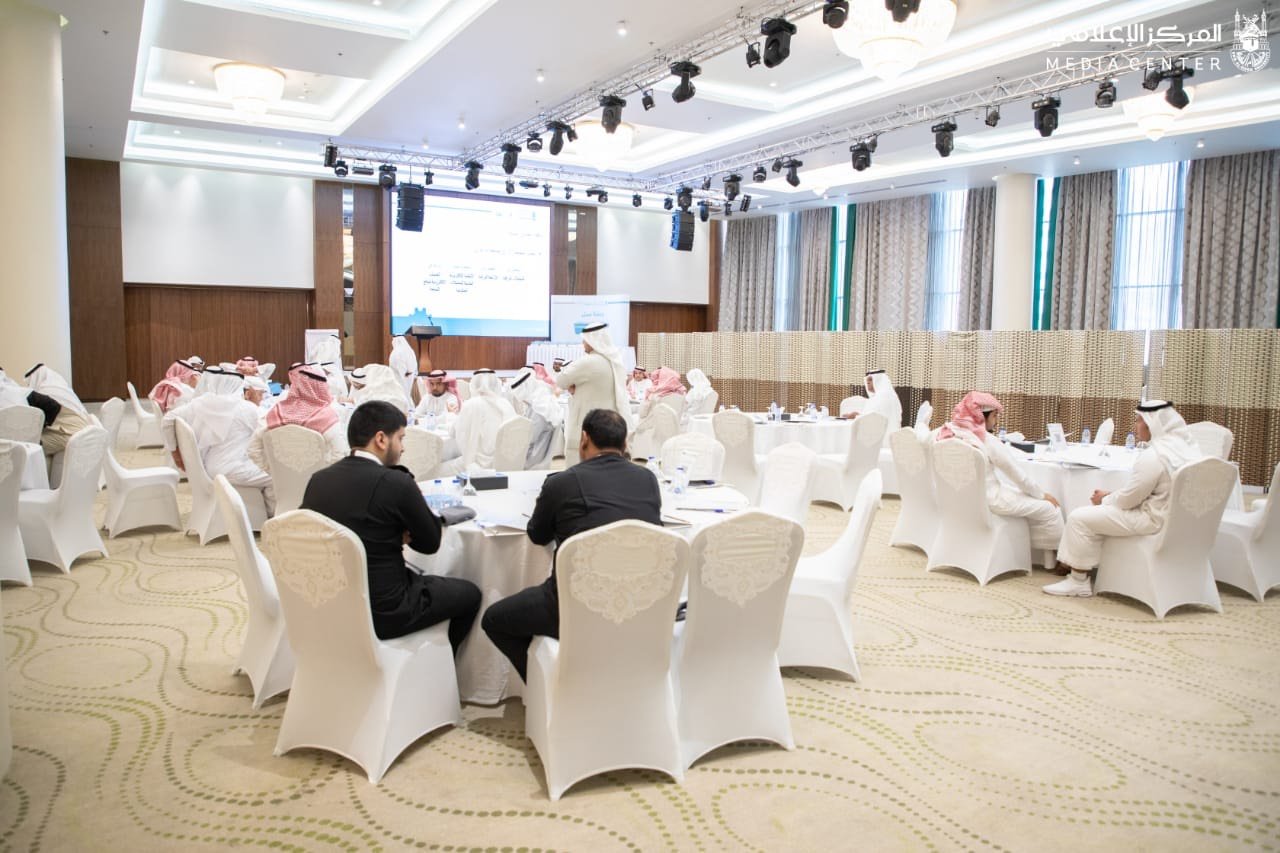
The second workshop of the UQU Empowerment Plan (Tamkeen 2023) was held today under the title "Umm Al-Qura University: Objectives and Aspirations." The workshop discussed the UQU strategic objectives, community initiatives, and development plans that contribute to ensuring the university outcomes are in line with labor market requirements, and included the participation of 100 officials from 50 bodies in the government, civil, and non-profit sectors that are affiliated with the UQU.
The UQU Vice-President for Development and Entrepreneurship, Dr. Hani bin Uthman Ghazi, underlined that the UQU seeks to consolidate its strategic relationships with the relevant authorities, benefit from their future views on UQU services, and meet their needs within the guidelines of the Tamkeen 2023 strategy. He said: "We are working on putting together a team of 500 leaders from among the college deans, vice deans, and Departments’ heads to implement the Tamkeen 2023 plan during the coming period and launch initiatives distinguishing the UQU external services." He commended the directives and support extended by His Excellency the UQU President, Prof. Abdullah bin Omar Bafail, for the UQU strategic plan and development programs.
His Excellency the Dean of the College of Nursing and Head of the Tamkeen 2030 Team, Dr. Ayman Jawahirji, highlighted the UQU statistics, colleges, and employees. He outlined the objectives and values of the Tamkeen 2030 strategic plans and analyzed them using the blue ocean analysis for the beneficiaries to monitor their aspirations for the higher education system and develop a number of operational initiatives for the five-year plan.
Dr. Ehab Malibari and Dr. Sumayya Sharaf conducted an open workshop and received the views of participants from the bodies linked to the university. They discussed their aspirations for the higher education system through four themes: strategic issues, blue ocean analysis, strategic initiatives, and future exploring analysis.
The participants recommended supporting sustainable environment programs and assigning care to the university's institutional structure to transform it into a smart institution, attract distinguished students, develop programs geared to specific talents, empower women in the workplace, in tandem with engaging the UQU more in Hajj and Umrah services, and fostering investment, knowledge economy, innovation, and entrepreneurship.
They also recommended more concentrated efforts on teaching the Arabic language, developing a clear strategic plan for the UQU, modernizing its academic programs to be in line with Saudi Vision 2030, fostering voluntary work through establishing a voluntary work center and customer service center, and publicizing the UQU activities and achievements throughout the media.